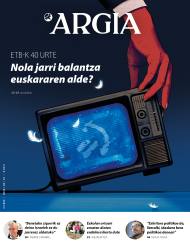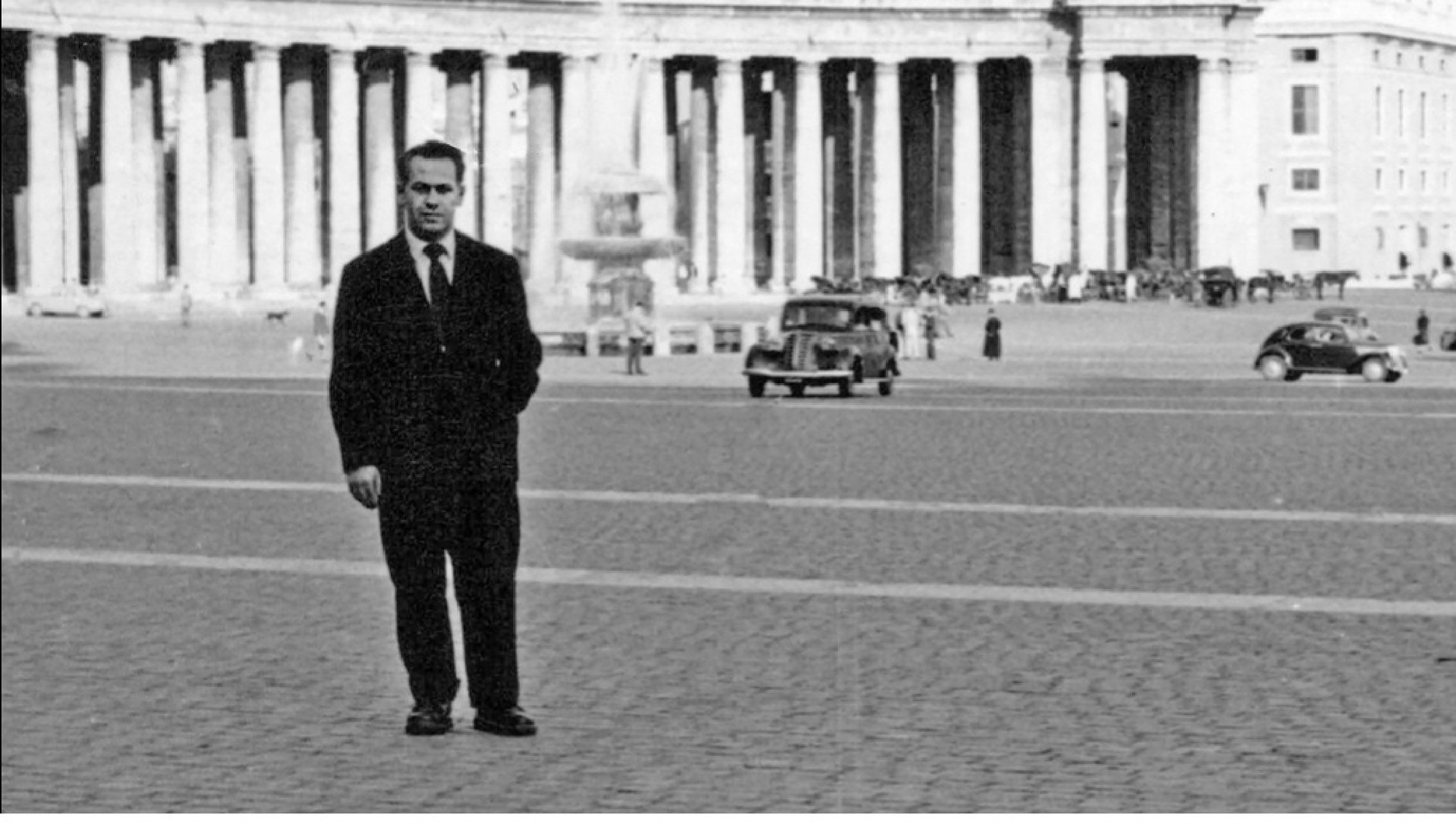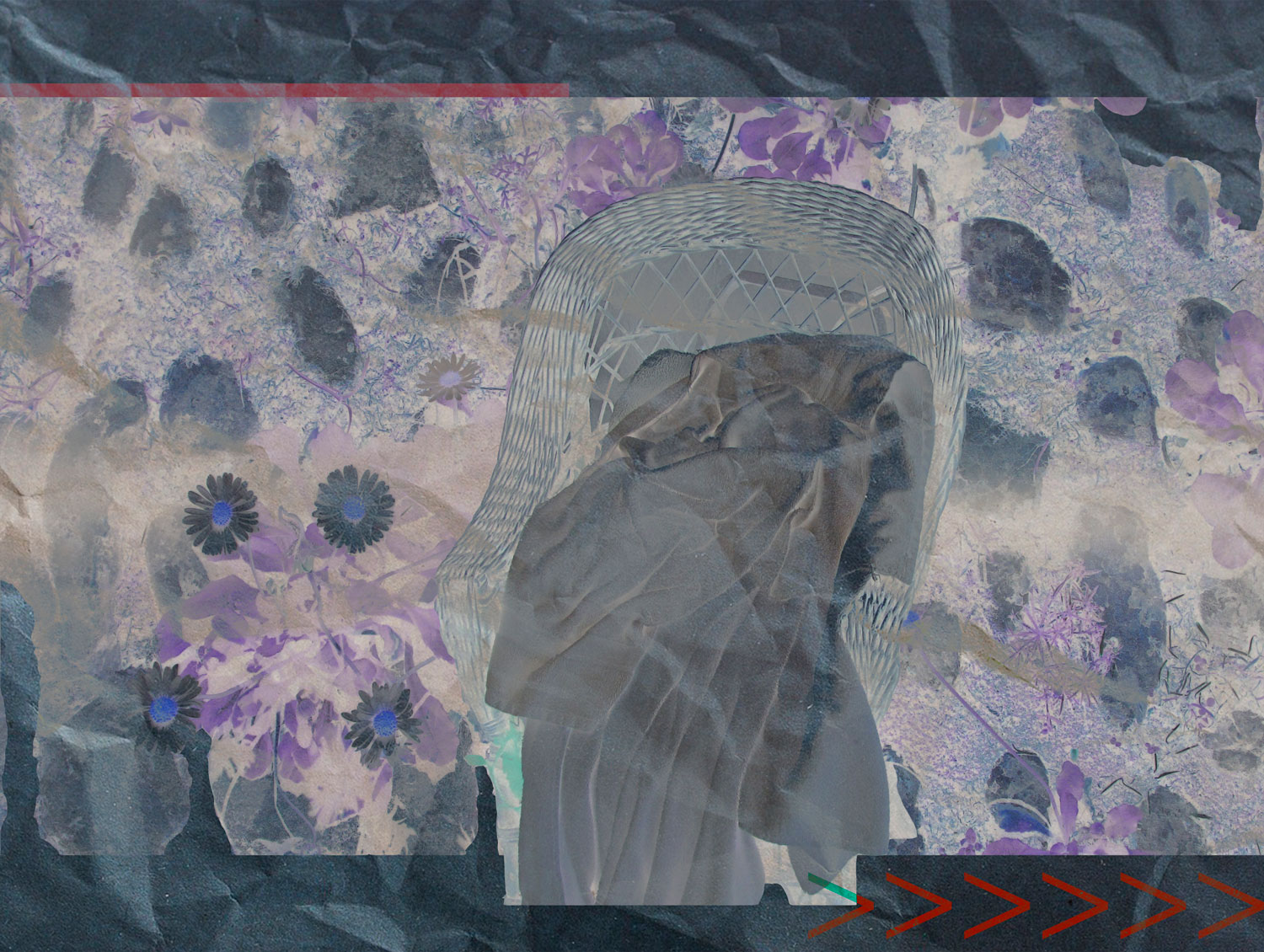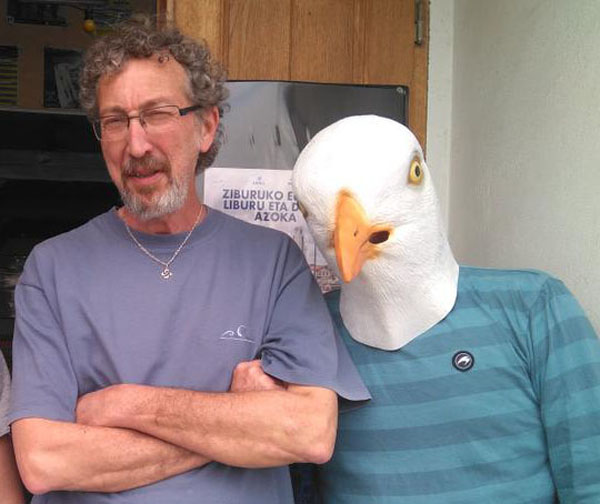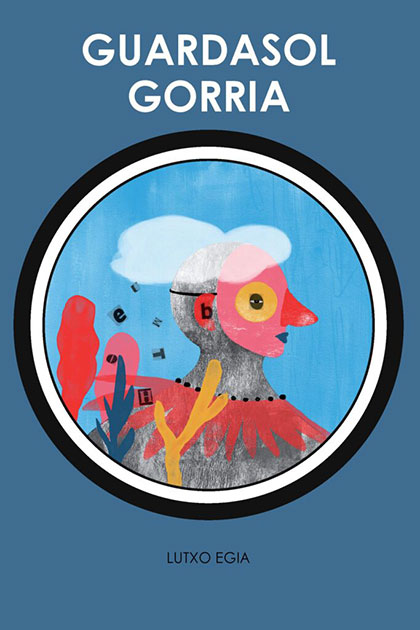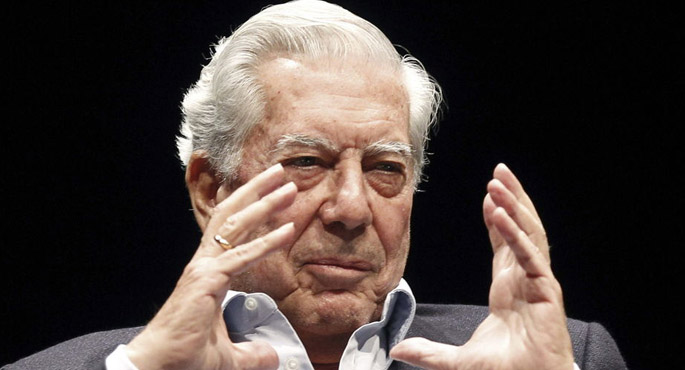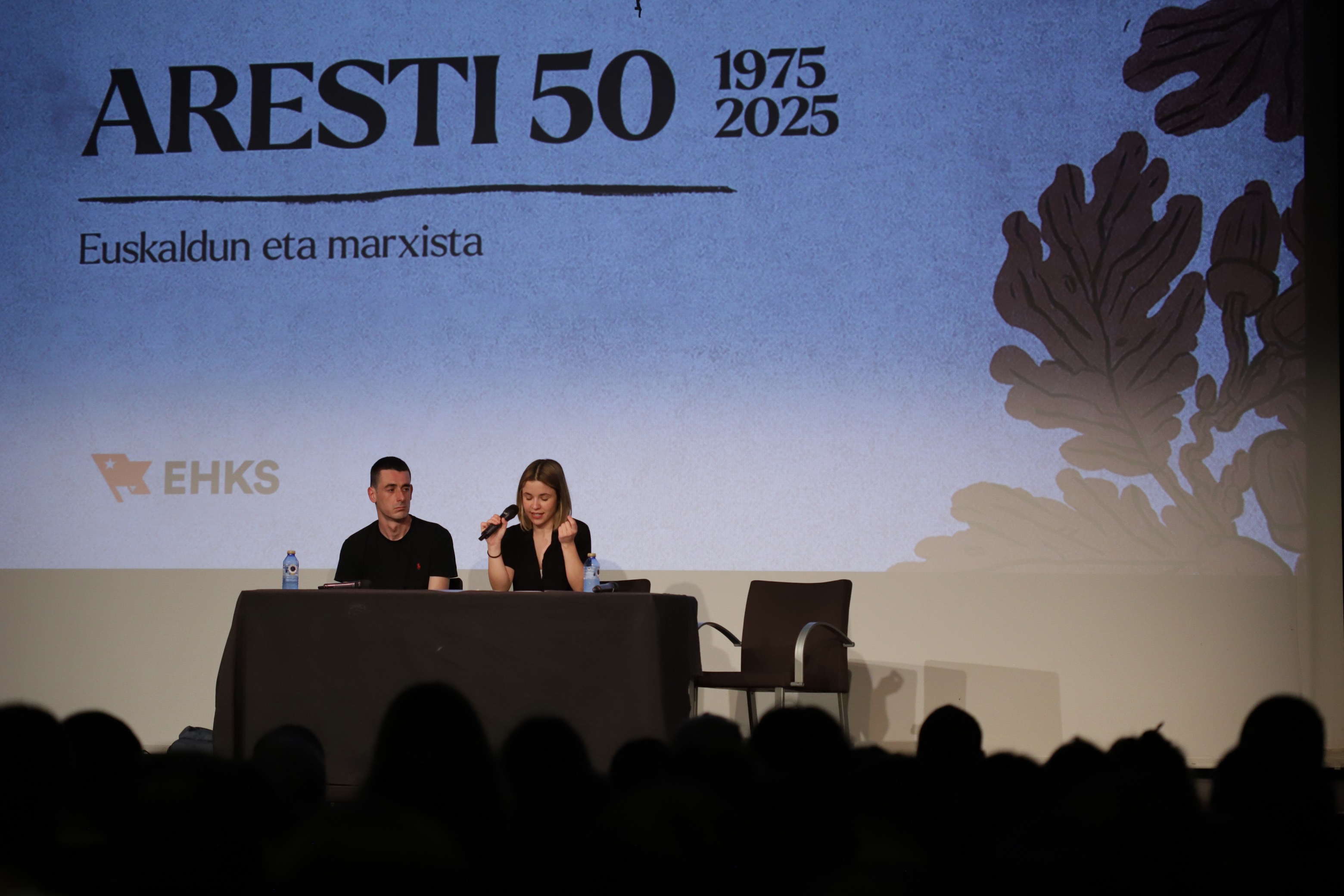"Literature awakens the reader's and the community's imagination"
- The Andalusian writer (Sevilla, 1974) attended the International Literary Short Film Festival in Vitoria in March. We have quoted with her at the train station of Vitoria-Gasteiz, with the luggage ready to return to her town, and among the noises of the passengers, the servers and the day to day, we have talked with him about the possibilities offered by literature to explain the reality, among other things.

Yesterday,
the central question was: Stories vs. novels, what is the main genre. What did you defend or answer? Well, I answered that I don't think they're comparable genera, but if we had to compare them, I find everything I'm looking for in the literature more intensely than in the story, and more deeply and extensively.
I think the novel in general allows us to go further. The story offers the possibility of huidiously approaching a possible world, while novels develop a whole world.
Literature allows us to exit the individual closure in which we live. Because reading, although reading is usually an individual activity, it also puts you in touch with others because it reconstructs a human plot. First with the story, with the characters, also with other readers who have read the book -- I mean, a certain community is created with the books. Literature awakens the reader's imagination and the imagination of his community. All of this can be found in the story, but I think the novel has a much longer journey, which gives more complexity to all those possibilities that I've told you and that go much further.
And is there something we can find in stories, which is not going to be in novels? Yes, of course. For example, in novels you can try narrative forms that would make it difficult for the reader. The story offers you more possibilities for play and experimentation, as well as a
new relationship with the reader. For example, I like the ones that make you believe that you're reading a certain thing, that as you get to the end they turn the story and change the meaning of what you've read. But to do so in a novel, to get the reader back to the beginning after having read 300 pages, is not so sustainable: the shocking story will become an effectual trap for the reader in the novel. Then, the story has a very poetic concentration and intensity, which the novel does not have, because the novel needs much more air and space… Nobody can resist the intensity that a good story can have on many pages, because it also does not correspond to the intensity of life.
And are there material differences in the production (and consumption) of stories and novels? Can you say that it takes more money and more time to make novels? We might think that the story coincides with the time we live in, both when writing and when reading. We are always talking about
a short period of time, problems of concentration and attention scattered in eleven accounts. So it seems that the brief narrative, as with the series, would be more appropriate for the reader -- but then it's not true because the story readers are very scarce.
People are still looking for a novel, and from a novel they want you to stay with you for a long time, to be worth the effort. There's the price. People pay 20 euros, so the book holds you a little. Our daughter, for example, is 15 years old, she's a tuned reader and she wants 600-page novels. And not just 600 page novels, but 600 page novels.
.jpg)
Tiza Roja (“Klera gorria”; Seix Barral, 2020) is your only collection of stories and from the beginning it says you are not a storyteller. And look, I've written a lot of stories, about 120-130. But it's true, I'm not a storyteller, because I have my house full of novels that I can read
and that I can ever write, but not stories. I find it easier to think in terms of novel.
All the stories I've written have been commissioned, mostly to be published in newspapers. However, in the case of newspaper stories, I've tried to get them out of the usual moulds, rather than the reader's rest, to make it one more piece. That is, as the newspaper looks to the present day, I seek that the story does the same, but using the tools of literature. That has been the story for me many times, and it has also served me to test things, techniques and ways of writing. So, your stories are related to reality and the present. When you write in the press, there are two ways: you have
something different to count, or you have to offer another way to count.
"Your aesthetic, literary and formal decisions are as political or more political as the subject you're writing."
A personal question, or a request for advice -- I write the essay and I have a problem: when I try to do something fictional, it seems to me that unbearable pamphlet literature becomes too often. How can you make a politically engaged fiction with literary value? I don't know if I'm the best to advise anybody, because some people think I write as a
pamphlet -- but let's say that for me the most important thing is form, literary form, not the one I'm going to write, or where I'm going to look, but how I'm going to tell.
Rather than the risk of the pamphlet, I find some aspects of reality that refuse to be narrated. Sometimes it can be because we do not understand them, because we are not able to think about them, because we are not able to shape them, because they overflow us... Other times it can be because we do not find a different way of counting, because they have already told us a thousand times in the same way, and because we have believed that there is no way to tell otherwise. If you are not looking for another way of counting, the reader ends up adapting to what you tell you and does not bother, does not change and cannot be made to see what can be conflicting. For me, the essence is in the way of counting. The aesthetic, literary and formal decisions you make are as political or more political as the subject you are writing.
There's a text by Foster Wallace. At sea, two young fish come across an old fish that says, "Good morning, young. How about water today?” And the two young, dubious, one another: "Hear, what is water?" They don't see water as we see it. The same goes for the economic system. Well, I think the kind of look that literature offers allows you to recover the strangeness of what we see natural and normal, and generate the questions that I care about. And that gets more than what. Because some literatures are tagged with politics, because we look at certain aspects of reality, or the subject or the characters. But if it's formally conservative, that ends harmlessly.
"It's a political writing literally when the same writing is political."
For example? This looks great in film, how decisive it is sometimes to put the camera somewhere else, and suddenly that reality you no
longer see, how it makes you see it differently. For example, with the subject of the Holocaust, with Son of Saul, that happens. The director of this film takes a short plane, in the whole film we will only see the protagonist's face and everything else is out of the plane. In this case, changing just the map, changing the way you count, everything is different.
What about literature? In the case of literature, and in relation to the Spanish-language literature that I have more
control, I believe that in Latin America we have the most interesting examples. It is clarifying, for example, that when they talk about violence they do not talk about violence, but that writing itself expresses violence. To name a few, I would bring Monica Ojeda or Emilano Monjer here. They have the ability to portray all kinds of violence, but the violent thing is the same writing and, consequently, also reading. I also try to do so, for example, with precariousness, and I ask myself not to write with precariousness, but to reflect precariousness, that is, that writing itself is precarious and, therefore, that reading is also so. For me, it's a political writing, literally, when the same writing is political.
In addition to doing literature, you also write opinion papers about politics, and I want to ask you about it. How do you see the political situation in Spain? The political consequences of October 1 in Catalonia seem to restructure the political landscape of the state, right? Of course, everything has changed, but not only because of the Catalan process. I believe that on 1 October the territorial crisis that came from before opened. It is not zero, it is part of the great systemic crisis. We came from the economic and financial crisis, from the political and institutional crisis, where the monarchy enters into crisis with the king’s abdication… Suddenly all the elements of the system come into crisis at once. One of these crises is the territorial crisis which, as I say, suddenly marks a new political time in a context of crisis. This gives it more strength than anything else could have
been done, but let us say that the state crisis makes it something else.
And, in your opinion, is society stuck in that crisis? None of these crises has been seriously closed, we have saved everything we can, the political crisis is totally open, the territorial crisis has not been closed, it has been saved, but it has not been closed. Attempts
are being made to resolve some of the consequences of the crisis, but we have not solved the deep problem of the territorial model. And not only has it not been fixed, but it's suffering a lot of tension. This tension came from the peripheries, but now the growth of a powerful Spanish nationalism that is unwilling to change the territorial model has increased.
Short
What do you have now in your hands? Any novel? I have a couple of ideas on the table related to the things we talk about in the dialogue. A project that I have in my hands seeks to open up the possibility of understanding much better those who go beyond a
concrete aspect of our life. I look for where I'm going to look to talk about what's happening to us, our way of life and even the solution.
Which of your books do you think is best suited to translate to Basque? I don't know if The
invisible hand (Seix Barral, 2011) would be the novel "Invisible Hand," a novel about the labor world. It is the one who has come closest to what I want to do, from the writings, and at the same time the one who has read worse and less.
Your favorite writer? One of the
reasons for continuing writing is Virgina Wolf, and in particular the novel To the Lighthouse (Farorantz).
Your last discovery?
I loved it, because I didn't think I was a good writer -- actor novel Ethan Hawke: Bright Ray of Darkness. A bright beam of darkness (Berenice, 2023). It talks about the world of theater.
And a
story? The night bocarriba, by Julio Cortázar.
Now that everyone has become more Franciscan than the Pope, it’s worth remembering our unsurpassed classics. There was one in the 17th century, his grace was Arnaut Oienart. And since we can’t immerse ourselves in all his works, today we will praise O.ten youth in... [+]
Aurreko tertuliako galderari erantzuteko beste modu bat izan zitekeen, akaso modu inplizituago batean, bigarren solasaldi honetako izenburua. Figura literarioaz gaindi, pertsonaia zalantzan jartzeko, edo, kontrara, pertsonaiaren testuingurua ulertzeko saiakera bat. Santi... [+]
Martin Martina and the Mystery of the Golden Comb
by Amancay
Gaztelañaga Batu, 2024
-----------------------------------------------------
Amancay Castañaga launches the mystery of Martín Martina and the golden comb accompanied by the illustrations of Alain Martínez... [+]
The annoying noise of the works of the neighbors has awakened me even today. I put my head on the pillow, and I tried to sleep for another twenty minutes, but there was no one to shut that drill down. I woke up and looked at the table of duties that I did at the beginning of... [+]
Guardasol gorria
Lutxo Egia
Susa, 2024
Under the asphalt, the flower
Text: Monica Rodriguez
Illustrations: Rocío Araya translation
of: Itziar Ulcerati
A fin de cuentos, 2025
Ereserkiek, kanta-modalitate zehatz, eder eta arriskutsu horiek, komunitate bati zuzentzea izan ohi dute helburu. “Ene aberri eta sasoiko lagunok”, hasten da Sarrionandiaren poema ezaguna. Ereserki bat da, jakina: horra nori zuzentzen zaion tonu solemnean, handitxo... [+]









